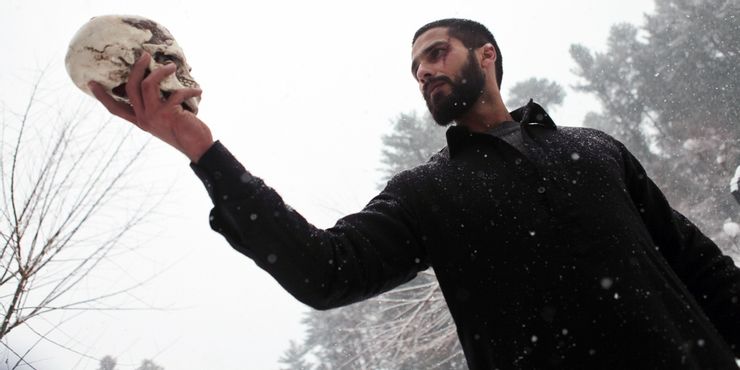Posted March 24, 2021
![]() Originally published on March 22, 2021 by Shaurya Thapa on Screen Rant
Originally published on March 22, 2021 by Shaurya Thapa on Screen Rant
From Hamlet to King Lear, the works of Shakespeare have been adapted far beyond their original English roots.
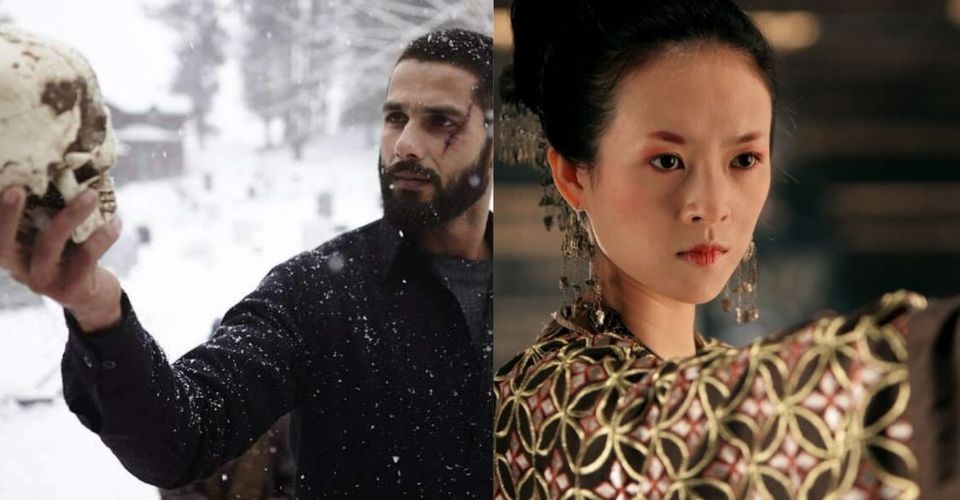
When it comes to classic English literature, William Shakespeare’s plays remain the ultimate classics. The Bard’s contributions to the English language are invaluable, considering his plays, poems, and the many words and phrases that he coined. But over the years, many non-English speaking countries have incorporated Shakespeare in popular culture through the medium of cinema.
Some of these films might be loyal adaptations while others were modern reinterpretations. While tragedies like Macbeth and Hamlet and romances like Romeo and Juliet were most sought after, a few historical plays like Titus and Julius Caesar have also made their way into the ambit of foreign cinema.
10.
Haider (2014)- Hindi
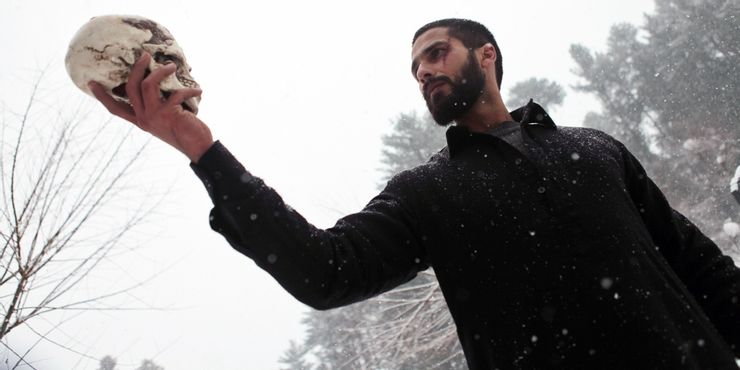
Instead of Hamlet‘s Denmark, Vishal Bhardwaj’s Haider shifts the setting to the snowy Indian territory of Kashmir.
The titular character (Shahid Kapoor) returns home after his studies, determined to find the reasons for his father’s disappearance. This prompts him to go down a dark rabbit hole of the region’s murky state politics fueled by state-sponsored violence and insurgent activities. And then as Shakespeare’s fans would guess, Haider’s uncle also turns out to be a shady figure. Haider is notable for retaining the play’s trademark elements while also addressing actual socio-political realities of the time.
Where to Watch: Netflix
9.
Cesar Must Die (2012)- French
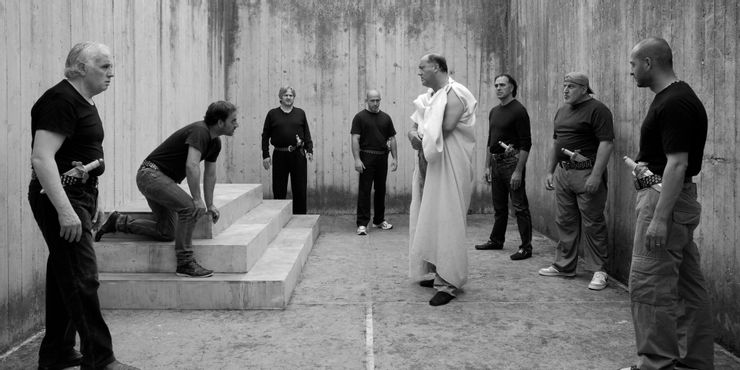
Cesar deve morire aka Cesar Must Die relies on a docudrama approach to enacting Shakespeare’s classic historical tragedy, Julius Caesar. The film picks up from a Roman prison as a group of prisoners prepares for a performance of the play.
The rehearsals add to the absurd hilarity of this French film but as the final performance approaches, the prisoners themselves harbor different views on the political powerplay that’s evoked in Shakespeare’s work. Caesar’s rise to power, his authoritarian control over the Senate, and his eventual betrayal; such themes are touched upon in this unconventional premise.
Where to Watch: Kanopy | Rent through: Apple TV+, Google Play, or YouTube
8.
Ran (1985)- Japanese
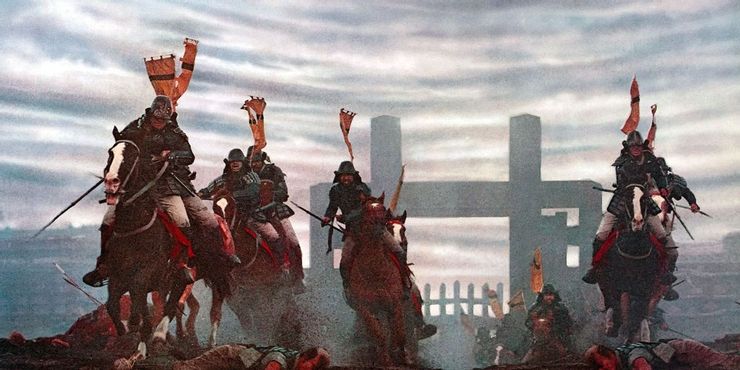
Japanese auteur Akira Kurosawa directed three Shakespearean adaptations in his stellar career, out of which Ran was the most acclaimed and internationally-known. The plot derives largely from King Lear as it delves into an aging warlord’s abdication.
The one major difference is that the British monarch divided his kingdom for his three daughters while Ran’s Ichimonji Hidetora (Tatsuya Nakadai) gives up his throne in favor of his three seasons, giving way to an intense civil war. The acting and Kurosawa’s epic scale aside, Ran boasts an iconic score and stunning period costumes.
Where to Watch: Rent through Amazon, YouTube, iTunes, Google Play, or Apple TV
7.
Kannaki (2001)- Malayalam
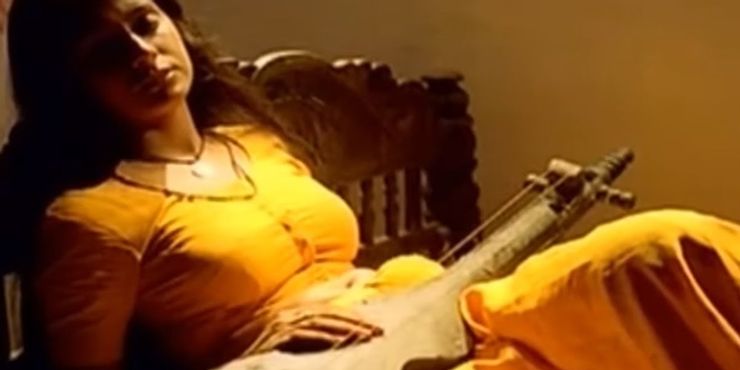
Kannaki replaces Antony and Cleopatra‘s Egyptian setting and places it in a local village in the state of Kerala. Notions of masculinity are explored as two friends (corresponding to Mark Antony and Octavius Caesar) engage in civil wars when one of them falls for Kannaki, a local medical practitioner (corresponding to Cleopatra).
While the film tones down the play’s scale of Roman conquests, it still retains many of the speeches from the original play while fully fleshing out the inter-character conflicts. The film’s director Jayaraj had previously directed Kaliyattam, an adaptation of Othello set in the world of local theatre practices that yet again deals with themes of masculine control over women.
Where to Watch: JioCinema
6.
The Banquet (2006)- Chinese
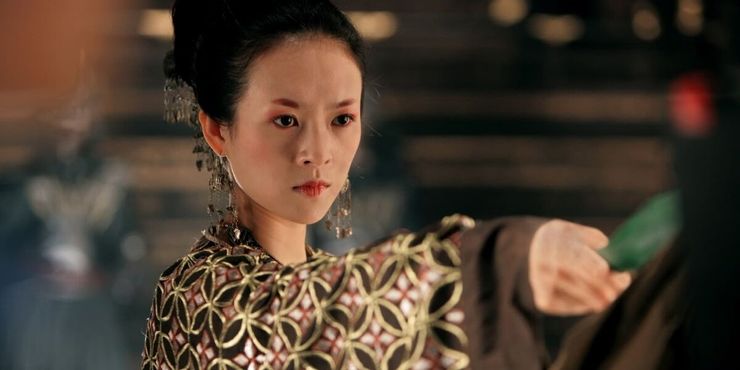
Also released as Legend of the Black Scorpion, The Banquet is a period drama set in an era of turbulent political division in 10th-century China. The story borrows elements from Hamlet, as several characters conspire against each other driven by revenge and lust for power. These conflicts then lead up to the titular banquet where each player decides to fulfill their intentions.
The film is notable for shifting the focus on Zhang Zhyi’s Empress Wan (the film’s version of Gertrude) as she’s a strong monarch in her own right and yet she’s seen as a trophy for the film’s male characters. In fact, the ‘prince’ initially fancies her only to find his father marry her. After the father passes away, the prince’s uncle controls both the throne and the Empress. However, as it turns out, it’s the Empress who subtly exercises the highest powers.
Where to Watch: YouTube or Rent through Amazon
5.
Throne Of Blood (1957)- Japanese
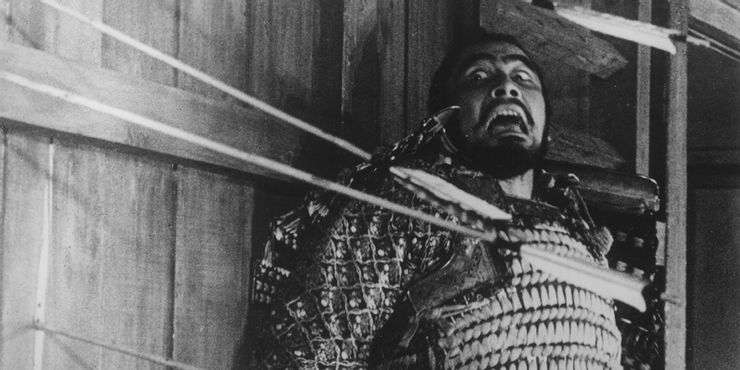
Coming back to Akira Kurosawa, Throne of Blood perfectly captures the moral dilemmas and guilt of Macbeth. The storyline would obviously be familiar to viewers considering the multitude of film adaptations the play has received. But what sets it apart is a reliance on poetic visuals rather than dramatic monologues.
Just like Rashomon, Throne of Blood relies on eerie, misty environments that foreshadow the betrayal and violence that follows. Frequent collaborator Toshiro Mifune plays the equivalent of Macbeth while Izuzu Yamada also delivers a powerhouse performance as Lady Macbeth. As the Coen Brothers plan to adapt Macbeth for their next feature, it would be a good time to revisit some of the better adaptations of the play with Kurosawa’s classic being a significant example that aged well.
Where to Watch: HBO Max (requires a subscription), Rent through Amazon
4.
The Journey To Melonia (1989)- Swedish
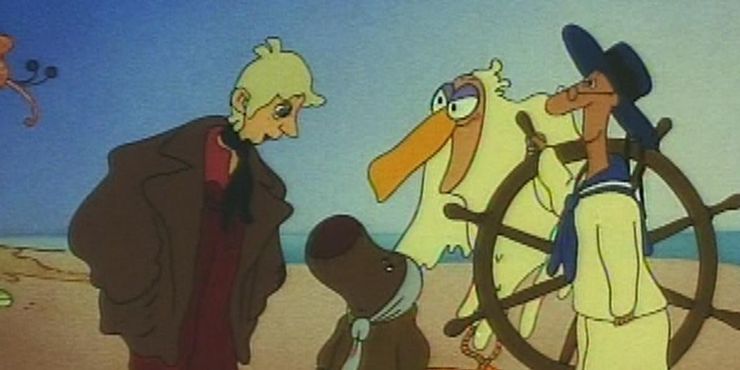
The Journey To Melonia is an animated adaptation of The Tempest, loosely inspired by the play. The fantasy elements are retained for a Disney-like animated style of the time although, despite its visuals, the Swedish film also bears philosophical undertones that adults might appreciate more.
Characters from the source material like Miranda and Prospero are present although in slightly different circumstances. Hence, it can be considered as both a reworking and a spin-off of the play.
Where to Watch: Free on YouTube
3.
Maqbool (2003)- Hindi
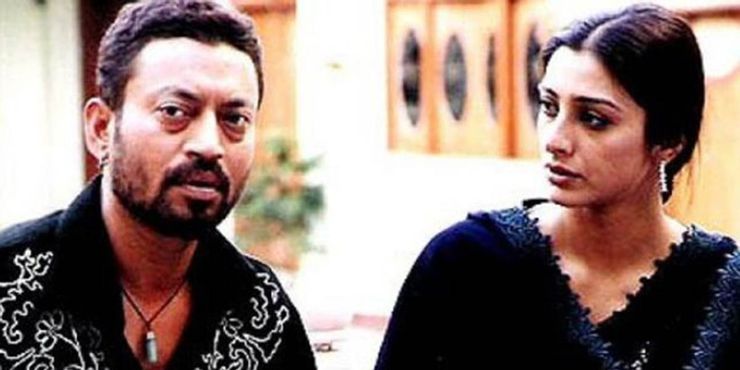
Before Haider, the Indian writer-director had adapted Othello for a political drama called Omkara. And even before Omkara, Bhardwaj had established his gritty style with Maqbool, an adaptation of Macbeth disguised as a gangster thriller.
The film revolves around Maqbool, a right-hand man of a Mumbai underworld don. Unknown to the latter, Maqbool also shares a secret affair with the don’s mistress Nimmi (Lady Macbeth). Playing mind games with Maqbool, Nimmi convinces Maqbool to usurp all power for himself. Even though the film doesn’t shy away from its share of violence, the essence lies in the toxic relationship between the two leads, brought to life by Tabu and the late Irrfan Khan.
Where to Watch: Amazon (included with Prime Subscription or available to rent)
2.
King Lear (1971)- Russian
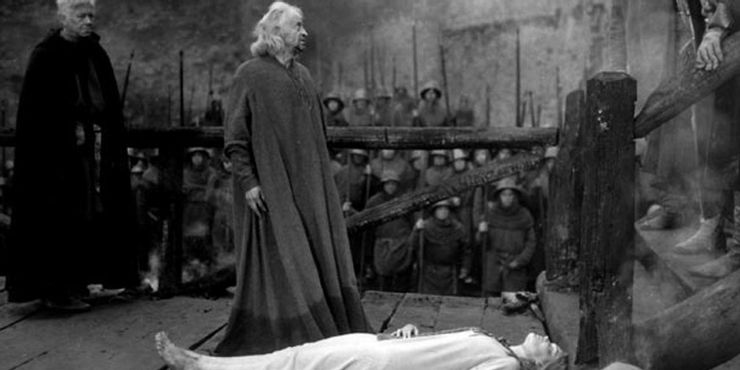
The Russian King Lear was unfortunately overshadowed by an English version by Peter Brook that was released around the same time (both shot in black-and-white). However, over the years, the Russian film has also received considerable attention over the year with many regarding it as one of the most superior adaptations in terms of the central character.
Most adaptations of this Shakesperean tragedy tend to focus on the old king’s familial troubles and his subsequent descent into madness. Grigori Kozintsev’s take on the play also expands on how the ruler’s poor decision spell disaster over the entire kingdom that he rules upon.
Where to Watch: Russian Film Hub (with English subtitles)
1.
Johnny Hamlet (1968)- Italian
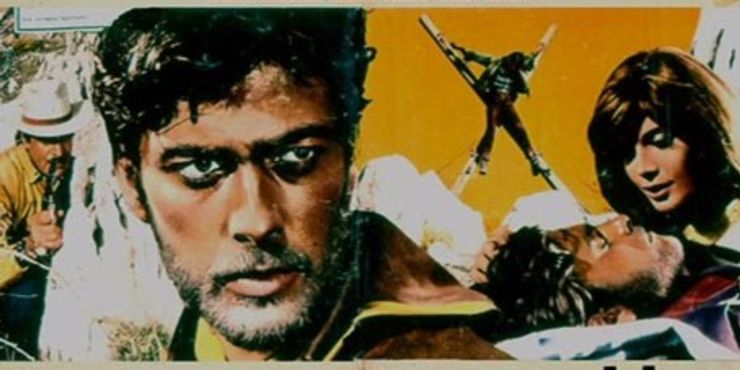
The 1960s were a golden age for Spaghetti Westerns and Johnny Hamlet blended the Wild West with Hamlet. An underrated cult classic, the film is an engaging watch with its typical shootout sequences and atmospheric score. After the Civil War, Hamlet returns to his sleepy town to find his father murdered at the hands of a bandit. While seeking revenge, he unearths a bigger conspiracy at hand.
As absurd as it sounds, the genre tropes blend well with the Shakesperean story as revenge has often been a driving theme in both pulpy Westerns as well as Hamlet remakes.
Where to Watch: Free on YouTube (with English dubbing)

